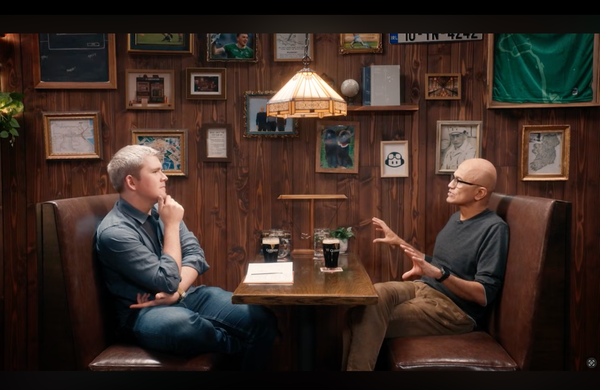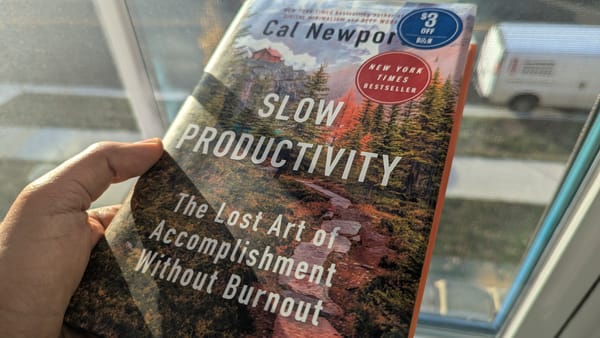Naval Ravikant on Wealth, Calm, and Winning the Ultimate Game of Life
Naval Ravikant returns for a rare sequel with Tim Ferriss to show that lasting wealth, deep calm, and clear thinking all spring from owning your time, rejecting consensus, and playing a finite game long enough to walk away free.
- Behind-the-Curtain Glimpse: Naval doesn’t do podcasts anymore—except for this one. ⏰ [00:06:42]
Naval opens with a disarming honesty: he avoids sequels because most of them suck. The first time, he says, you’ve distilled decades of reflection; the second time, you're expected to match it with just a few years of new material—and often ego gets in the way. But he made an exception for Tim Ferriss. Why? “You put me on the map,” he says with warmth. This sets the tone: two old friends revisiting the big ideas that made their first conversation a cult classic. No PR script, no agenda—just a thinker returning for one more lap, hoping not to embarrass himself in the process. - Lightning-Bolt Moment: Why Richard Feynman is Naval’s hero. ⏰ [00:08:57]
Naval’s Twitter banner shows Richard Feynman at a blackboard—and for good reason. Feynman, he explains, was a joyful, mischievous mind who approached quantum physics like a curious hacker. “He was serious about science,” Naval says, “but not too serious about himself.” That balance—of rigorous inquiry and playful detachment—inspires Naval’s own life. He sees Feynman as the model of a person who contributed real value to humanity while still being philosophical, funny, and utterly human. It’s not just about brilliance—it’s about being brilliant without becoming brittle. - Red-Pill Realization: Science has become politics in disguise. ⏰ [00:11:55]
Naval unloads a subtle but sharp critique: much of what’s labeled “science” today is really social consensus—and that’s not the same thing. He channels Karl Popper and David Deutsch to explain that real science must be falsifiable and independently verifiable. “If it can’t be proven wrong,” Naval says, “it isn’t science—it’s propaganda.” He notes how people cherry-pick studies to bolster narratives, not test ideas. Big Science has started to resemble Big Politics, and that’s dangerous. Real science, he argues, happens quietly, in small rooms, by people more interested in truth than applause. - Peel-Back-the-Layers Insight: Knowing the name of something isn’t the same as understanding it. ⏰ [00:17:30]
Naval revisits one of Feynman’s favorite lessons: memorizing jargon is not the same as knowing how something works. We often substitute vocabulary for comprehension. “Most professionals hide behind lingo,” he says—especially in fields like accounting or medicine. But in reality, understanding something means being able to rephrase it simply, from scratch, in any language. You should be able to teach it five different ways. Naming the bird doesn’t tell you how it flies, what it eats, or how it survives. Understanding is deeper—and rarer—than memorization. - Career Compass: You’ll never get rich renting out your time. ⏰ [00:25:30]
This is the cornerstone of Naval’s famous tweetstorm: to achieve financial freedom, you must own equity. A piece of a business. A stake in something that earns while you sleep. “If you don’t own equity,” he says bluntly, “you’re just renting out your time—and time doesn’t scale.” He urges people to productize themselves, to find specific knowledge, and to apply leverage—whether through code, media, or capital. In a digital world, the best in the world at any skill can serve everyone. That upside is only captured by owners. - Self-Honesty Gut Check: Most suffering comes from seeing things as they are—and not liking what we see. ⏰ [00:47:42]
Naval gets real about suffering: it’s the moment when you stop avoiding reality. Whether it’s a failing marriage, deteriorating health, or a career you’ve outgrown, the pain kicks in when denial finally drops. “People don’t want to go back down the mountain to find a better path,” he says. “They just want to tweak the one they’re on.” But the real work of transformation begins with unlearning—and that usually means confronting sunk costs, broken narratives, and inconvenient truths. - Liberating Perspective: Calmness is a superpower. ⏰ [00:56:00]
This insight is deceptively simple: imagine how effective you'd be if you weren’t anxious all the time. Naval speaks from experience. He recalls a recent high-conflict business situation where he stayed unusually calm—compared to an earlier version of himself, who would’ve been spinning in fear. The difference? Self-examination, meditation, and a decision to stop letting the mind run him. “Stillness lets you see clearly,” he says. “It lets you act surgically, without being hijacked.” Calmness, in other words, isn’t passivity—it’s power in its most refined form. - Uncommon Practice: Naval’s meditation is radical: do nothing. Really. ⏰ [00:49:00]
No breath focus. No mantra. No guided app. Naval describes a meditation practice that sounds like rebellion: sit for 60 minutes, twice a day, and just… let the mind do what it wants. Over time, he says, the mental inbox clears. The noise burns off. And what’s left is an unexpected gift: clarity. “When the best hour of your day is spent alone,” he says, “the world has very little to offer you—and that’s a kind of freedom.” He insists this isn’t spiritual posturing. It’s simply the byproduct of spending real time with yourself, no distractions allowed. - Mental Framework: Build your life around timeless truths—not trending headlines. ⏰ [00:51:30]
Naval cautions against the tyranny of breaking news. The media’s goal, he says, is to make every problem your problem. That’s not sustainable. Instead, he urges a pivot toward the timeless—books, philosophy, long walks, quiet thought. Read the old questions. Sit with old answers. Seneca. Schopenhauer. The Bhagavad Gita. These thinkers weren’t chasing Twitter likes. They were wrestling with mortality, meaning, and how to live well. Naval’s diet of ancient wisdom isn’t about sounding smart—it’s about staying sane. - Cryptocurrency Decoder: Why stablecoins are never really “stable.” ⏰ [01:11:00]
In a crash course on crypto, Naval breaks down why so-called stablecoins always come with hidden risks. Tether? Might be fraud risk—it’s unclear if it’s really backed by cash. USDC? Trusted but censorable. MakerDAO? Algorithmic, but vulnerable to market crashes. “There’s no free lunch,” he says. Creating a stable asset from volatile crypto means someone, somewhere, is taking on risk. He sees crypto not just as tech, but as a movement—a way to opt out of the traditional system. But to do it well, you better understand the fine print behind every promise. - True Wealth Test: The goal isn’t to make money forever—it’s to stop playing the money game. ⏰ [01:40:40]
Naval closes with a poetic mic drop: “The reason to win the game is so you can be free of it.” Most people, he says, don’t know how to stop playing. They keep moving the goalposts. One million becomes ten. A taste of status becomes a hunger for more. But the real win is recognizing when you’ve got enough—and then living like it. “When I look at the world,” he says, quoting Socrates, “there are so many things I do not want.” That, he suggests, is true freedom: not craving more, but choosing peace.
Naval: Part Philosopher, Part Technologist, Part Thinker.



